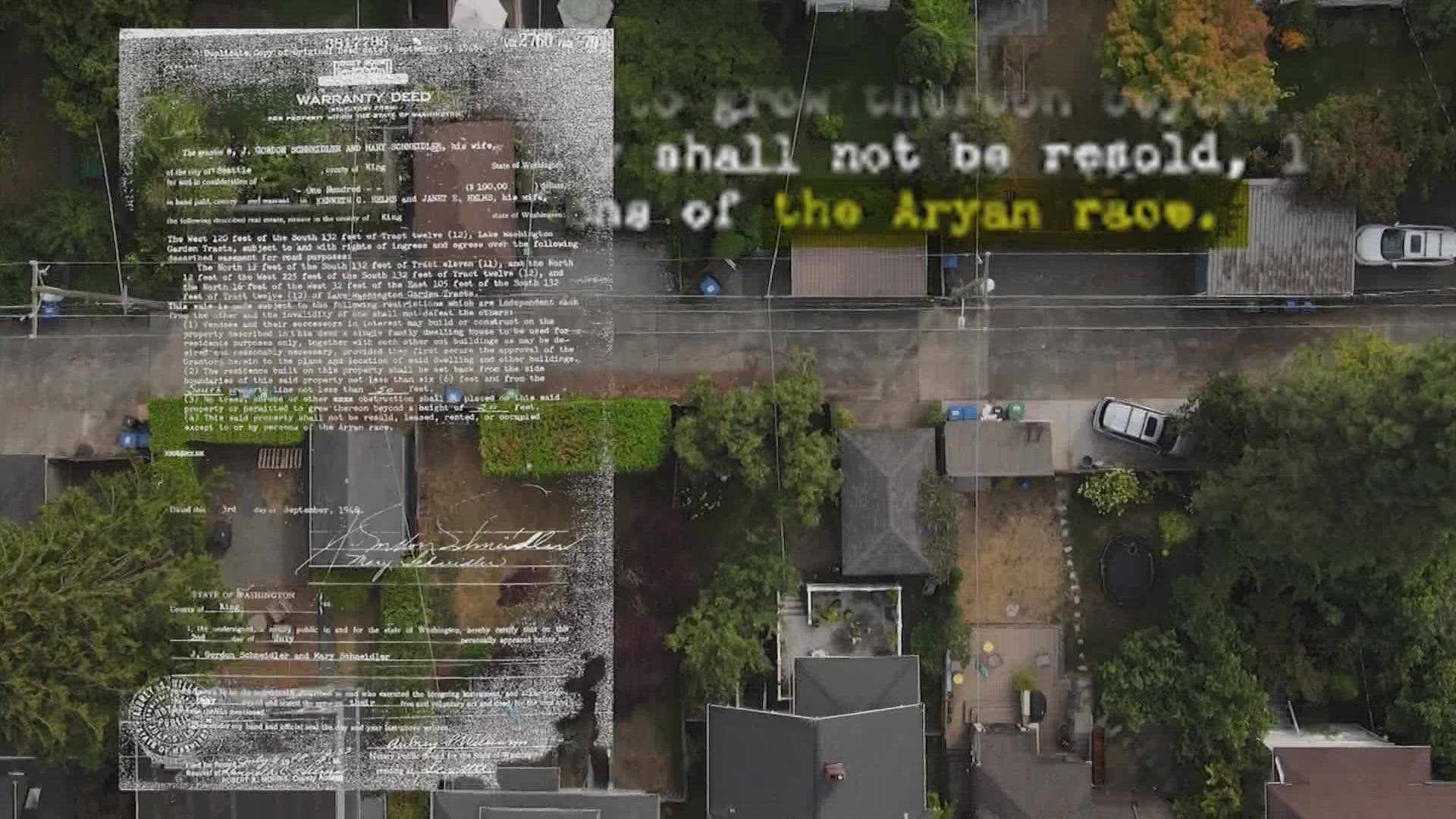SEATTLE, Wash. — George Carter moved to Seattle from Mississippi in the 1970s to get away from the racism he felt growing up as a Black man.
”You can’t drink out of the fountain… go to the back door to buy your food,” said Carter.
But he said things haven't been much better in the Pacific Northwest.
“People up here, they camouflage it,” said Carter, 78. “People up here, they laugh in your face and stab you in the back.”
Carter said he wasn’t surprised to hear researchers have discovered more than an estimated 40,000 examples of western Washington households established with racist language in the first half of the 20th century. Neighborhoods prohibited residents of “Negro blood” in Seattle or only allowed those “of the Aryan race” in Bellevue.
State funding approved last year provided $250,000 for researchers at Eastern Washington University and the University of Washington to look for racist or restrictive covenants.
The language has not been enforceable since the 1960s, but lead researcher UW Professor James Gregory said doing the work is worthwhile.
”We owe it to our fellow citizens not to waltz through life, ignorant about inequalities that still matter, that come from history, but still matter. So this is about awareness,” said Gregory.
His latest maps and research can be found here. So far, researchers have released data on specific racial covenants for neighborhoods in King County.
According to Gregory’s estimates, his researchers have identified more than 30,000 examples of racist covenants in King County, an estimated 4,500 in Pierce County, 4,000 in Snohomish County, 2,500 in Thurston County and an estimated 2,000 in Whatcom County.
Gregory started looking for language mostly on documents on microfilm starting in 2005.
”That's hard," Gregory said. "That takes eyeballs and hours and hours of looking through reels and reels of microfilm for these restrictions."
He said his researchers are training volunteers. They have more than 600, and he plans on going to legislators next year to ask for more funding to ensure all of the state’s records can be examined.
”The official practice of segregation promoted by the federal government, state governments, that's part of our history, as much as it's part of Mississippi's history,” said Gregory.
Researchers are not finished.
“We're a long way from finishing with some counties,” said Gregory.

